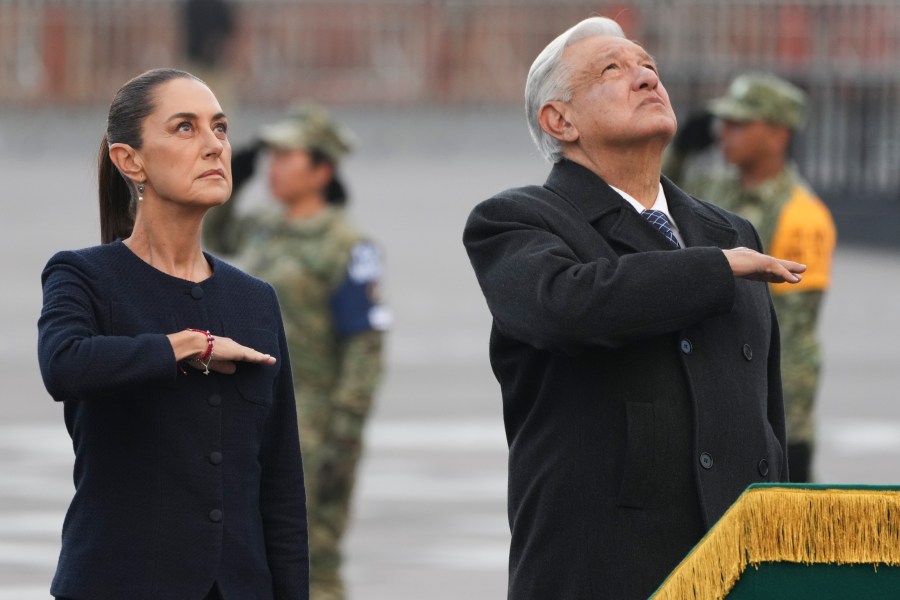Mexico’s first elected Supreme Court will officially take its seats on Monday, marking a significant moment in the country’s legal history. Observers are closely monitoring whether the court will establish its independence from the ruling party, which conducted the nation’s inaugural judicial elections. Out of the nine justices, only three have prior experience on the high court; the rest are newcomers, including the newly appointed president of the court, Hugo Aguilar, a lawyer known for his advocacy of Indigenous rights.
The idea of judicial elections was championed by former President Andrés Manuel López Obrador, who often clashed with judges opposing his agenda. López Obrador argued that elected judges would enhance accountability and reduce corruption. Critics, however, warned that such elections could lead to the politicization of the judiciary. Although the elections were intended to be nonpartisan, there were reports of voting materials that suggested affiliations with the governing party, which has raised concerns about the integrity of the process. Many voters were overwhelmed by the sheer volume of candidates—over 7,700 competing for more than 2,600 judicial roles.
The Supreme Court will be under particular scrutiny as it has occasionally acted as a counterbalance to López Obrador, whose party, Morena, controls majorities in both chambers of Congress. Juanita Goebertus, Americas director for Human Rights Watch, emphasized that the court must avoid partisanship and instead base its rulings strictly on legal principles.
As the new court begins its term, it faces nearly 1,400 pending cases, encompassing significant issues that have drawn both national and international attention.
Key Issues Awaiting Resolution
One pressing matter is the policy of mandatory pretrial detention, which has attracted considerable international criticism. López Obrador expanded the range of offenses that warrant automatic detention pending trial, including certain nonviolent crimes. Critics argue that this approach violates international treaties to which Mexico is a signatory. The U.N. High Commissioner for Human Rights and the Inter-American Court on Human Rights have called for the repeal of this policy, stating it infringes on individual rights. The Mexican government defends the measure as a necessary tool to combat crime and protect judges. However, in a legal environment where judicial processes can extend for years, and only one in five accused individuals are convicted, the policy raises serious human rights concerns. As of 2023, it was reported that four out of ten inmates in Mexican prisons had not been convicted.
Another critical issue is access to abortion. The previous court made landmark decisions in 2021 and 2023 to expand abortion access, but the new court will need to address challenges arising from states that continue to classify abortion as a criminal act. While the 2023 ruling invalidated federal criminal penalties related to abortion, it did not automatically apply to state laws. Ana Cárdenas, director of justice projects for the World Justice Project, noted that uncertainty looms regarding whether the new court will maintain the legal reasoning established in recent years until it takes on related cases.
Transgender rights also remain a focal point, with previous courts having made strides in this area. Decisions have allowed individuals to modify their gender on birth certificates without judicial intervention, extending this right to minors in 2022. Nonetheless, according to Human Rights Watch, only seven of Mexico’s 32 states currently permit children to alter their identity documents to align with their self-perceived gender.
Lastly, the new court will confront challenges related to recent changes in mining regulations enacted by the governing party. In 2023, significant amendments were rushed through Congress, limiting the duration of mining concessions from 50 years to 30 years and stipulating that authorities can revoke concessions if no work is conducted within two years. These changes have sparked environmental concerns and allegations of exploitation, particularly in communities surrounding mining operations, which often remain impoverished.
As the court begins its work, its approach to these pivotal issues will play a crucial role in determining its independence and influence within the Mexican legal landscape. The world will be watching closely to see how it navigates the complexities of law, governance, and human rights in the coming years.
